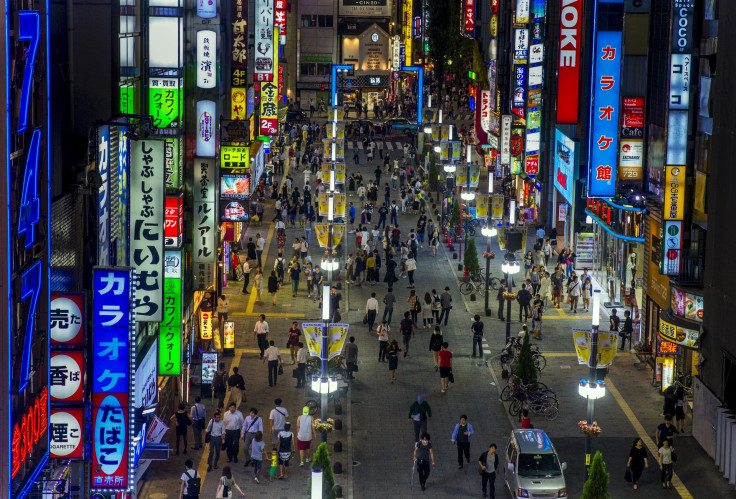Japan’s Population Declines By 0.7% From 2010, First Fall Since 1920

Latest census figures released in Japan showed the country’s population at just over 127.11 million on Oct. 31, 2015, a fall of about 950,000, or 7 percent, from 2010. The tenth most populated country in the world, it was reportedly the only one among the top 20 most populated nations whose population was declining.
The confirmed number, announced Friday by the Statistics Bureau of Japan's Ministry of Internal Affairs and Communication was higher than the provisional estimate of 126.81 million the bureau announced on Feb. 1. The overall population declined even as the number of non-Japanese residents increased, according to the ministry, Japan Today reported.
“It is crucial to establish a social structure to accommodate” the fall in population, Chief Cabinet Secretary Yoshihide Suga said, according to the online newspaper, adding that the government was planning to undertake various measures to raise the country’s birthrate as well.
While the country’s population declined, Tokyo saw an increase of 354,000 people. With more than 13.5 million residents, Japan’s capital is now home to over 10 percent of the country’s population. Including Tokyo, only eight of Japan’s 47 prefectures registered an increase in population. Fukushima, the site of a nuclear fallout following a tsunami and earthquake in 2011, saw the biggest fall of 115,000 people.
According to government projections, about 40 percent of Japanese citizens will be 65 or older by 2060 and the general population will be 33 percent smaller than it is now, the BBC reported. Prime Minister Shinzo Abe had inducted Katsunobu Kato into his cabinet last October as minister in charge of policies aimed at halting a slide in the working-age population.
© Copyright IBTimes 2024. All rights reserved.





















